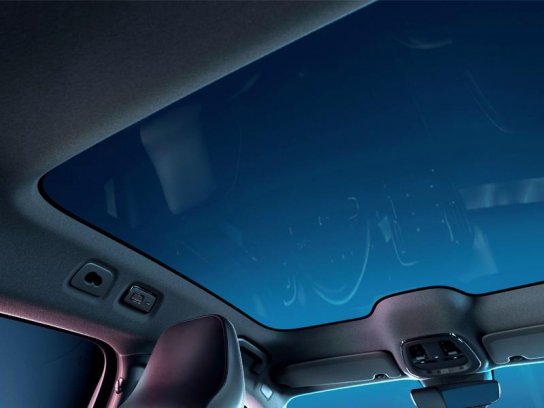
IVL recognition for recycling
BASF chemical recycling process now validated and headliner introduced in a fully electric European premium car.

30th November 2021
Innovation in Textiles
|
Burgos, Spain
Tier 1 automotive supplier Grupo Antolin has developed the first car headliner substrate produced by thermoforming a PU foam with materials made from urban and post-consumer plastic waste, a swell as end of life tyres.
The company, based in Burgos, Spain, is a global leader in the production of automotive interiors and among other services, supplies one in every four of the car headliners produced worldwide. These are made from a number technical textiles, foams and composites.
The new headliner is said to look and perform exactly the same as the company’s established headliners and has been made possible by a chemical recycling process developed by BASF, which Antolin has now validated and introduced in a fully electric European premium car that has just been launched to the market.
Approximately 50% of the headliner weight is recycled and 100% of the textiles, 70% of the core foam and 70% of the plastic sunroof reinforcement frame were obtained from waste that couldn’t be recycled in any other way, the company reports.
Competitive
“This project is a step towards a more sustainable car interior trim and a huge leap for wet PU (polyurethane) technology,” said Enrique Fernandez, advanced engineering director of Antolin’s Overhead Systems business. “It is a technology that has been demonstrated to be the most competitive in terms of cost and quality, while at the same time meeting the most demanding specifications of our customers.
“Our next project featuring recycled core PU foam will be unveiled in 2022 and will be manufactured using renewable electricity,” said sustainability director Javier Blanco. “Our commitment is to reduce the generation of waste and emissions in all our production processes.”
Grupo Antolin employs various methods for recycling interior trim parts, with the mechanical recycling of thermoplastic materials already well established. The company’s Novaform process can transform a wide range of recycled plastic and synthetic fibres back into automotive parts.
Mechanical recycling is not possible, however, with many thermoset materials, for which the company has established a method of turning waste from headliners into construction boards called Coretech.

Business intelligence for the fibre, textiles and apparel industries: technologies, innovations, markets, investments, trade policy, sourcing, strategy...
Find out more